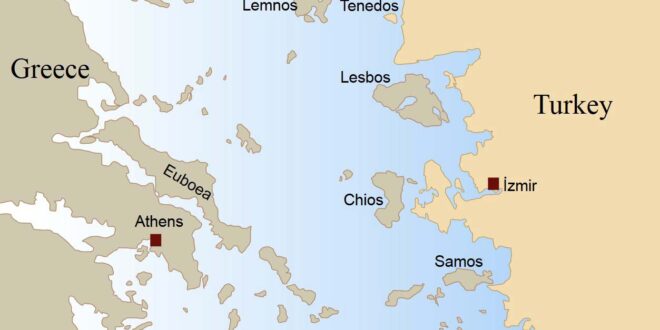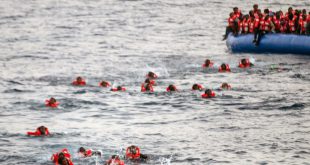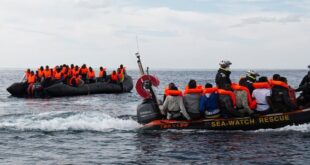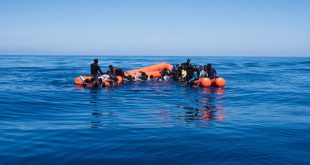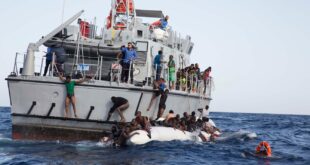The Greek government unveiled a plan to build sea barriers across the Aegean Sea in a bid to prevent irregular migrants crossing to the Greek islands from Turkey in a bid, according to analysts, to call the bluff of Turkish President Erdogan, who has repeatedly threatened to send millions of refugees to Europe.
Greece’s defence ministry published a call for tenders Wednesday (29 January) for the installation of a “floating protection system” in the Aegean Sea to stop migrants arriving its islands off the coast of Turkey.
The system, which could involve either barriers or nets, 2.7 kilometres long, would be used as an emergency measure by the Greek armed forces, said the document.
The specification requires the barriers to be 1.10 metres high, of which 50 centimetres should be above the surface and equipped with flashing lights. The ministry put the cost of the budget at €500,000.
The decision to install floating sea barriers is announced against the backdrop of last week’s protests by the inhabitants of the large Greek islands of Lesbos, Samos and Chios over the government’s handling of migrant arrivals. Lesbos, Samos, and Chios have born the brunt of receiving the largest numbers of migrant arrivals from the Middle East in recent months.
Since the migrant crisis in 2015 with the conflict in Syria, Greece has struggled to manage the influx, keeping many on overcrowded camps on the Aegean Greek islands near the Turkish coast.
The project comes as part of the new Greek government’s move to fulfil its promise to take a tougher stance on illegal migration.
More than 40,000 asylum-seekers are currently crammed into the island camps, where the official capacity is for 6,200 people and in conditions repeatedly denounced by aid agencies.
The conservative government of Prime Minister Kyriakos Mitsotakis has toughened its approach to asylum-seekers and is trying to speed up the repatriation of people whose applications have been rejected.
Turkey’s President Recep Tayyip Erdoğan has in recent months threatened to allow millions of Syrian refugees to head towards Europe if the EU does not provide it with more financial support.
“We want to see whether it can be implemented and whether it can work,” defence minister Nikos Panagiotopoulos told Skai TV on Thursday. Migrants stranded on Greek high seas, nevertheless, will have to be rescued under international maritime rules, say analysts.
Amnesty International has described the Greek decision to build the floating barriers as “alarming” and said the move raised “serious issues” about Greece’s plans for dealing with those “desperately seeking safety”.
Felix Dappah with agency reports
 THE AFRICAN COURIER. Reporting Africa and its Diaspora! The African Courier is an international magazine published in Germany to report on Africa and the Diaspora African experience. The first issue of the bimonthly magazine appeared on the newsstands on 15 February 1998. The African Courier is a communication forum for European-African political, economic and cultural exchanges, and a voice for Africa in Europe.
THE AFRICAN COURIER. Reporting Africa and its Diaspora! The African Courier is an international magazine published in Germany to report on Africa and the Diaspora African experience. The first issue of the bimonthly magazine appeared on the newsstands on 15 February 1998. The African Courier is a communication forum for European-African political, economic and cultural exchanges, and a voice for Africa in Europe.

